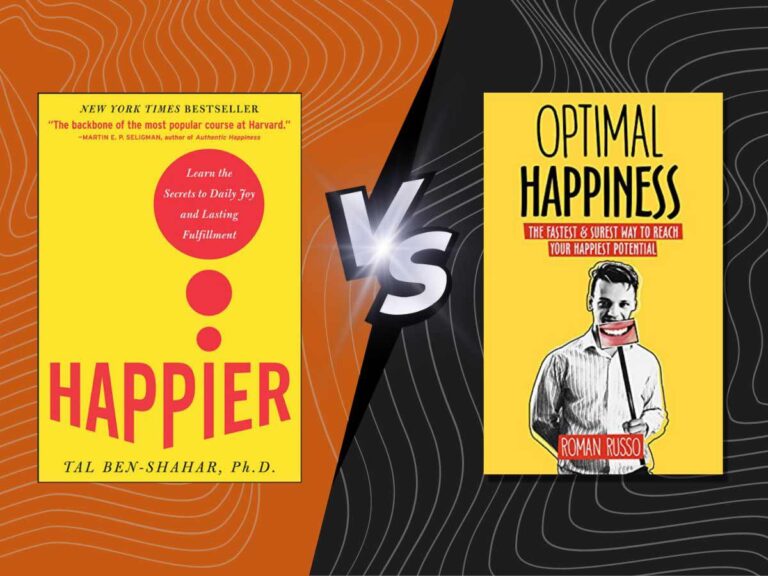“It has no flavor without spices” or “Western food is only bland, as it uses only salt and pepper” is something you will hear from some from India or other countries where eating spices is a part of their local cuisine. Furthermore, spices can be extremely healthy and delicious, which is both positive and negative, as constant pursuit of extremely positive experiences may backfire and negatively affect our well-being cancelling all the benefits it should be creating in the first place.
I know this is not something you expected to hear on a happiness blog, but avoiding extreme negativity can go hand in hand with avoiding extreme positivity, as constantly seeking extreme positivity may lead to unhappy. After all, extreme positivity can be hard to attain and maintain, so if we want it and don’t have it, or simply lose it, this is exactly why we are unhappy.
This is also why some of the wealthiest people in the world often have a big problem staying happy. They still think that they are not living up to their full potential, and society continues to lie to all of us, saying that unless we have everything all the time (which is impossible), we are supposed to be unhappy. Spices play into this whole logic, keeping us overstimulated and happy when we have them, but as soon as we are lacking them, we feel incomplete and dissatisfied.
Spices & How They Overstimulate Our Emotions
Before writing this article calling for a mindful use of spices in our cuisines, I also wrote an article calling for a stop watching scary movies and listening to loud music. What these articles have in common is that they contribute to the emotional overstimulation of our minds.
When the high level of stimulation eventually wears off, people feel unhappy and unsatisfied. They feel a need for new stimuli, almost as if something is missing in their lives. This leads to a never-ending cycle of seeking the next fix, whether it’s doing, buying, eating, consuming social media, or anything else that can provide a higher level of stimulation.
This constant overstimulation is one of the main reasons for the unhappiness we see today. Many people are unable to take low-stimulation breaks as they feel like they constantly need to be doing something. This is unrealistic and unhealthy. Even those who reach high levels of wealth and power often find themselves unsatisfied and unhappy. They come to the realization that more stimulation didn’t fix all their problems. Now they have reached the height of what is possible in terms of emotional stimulation, and it wasn’t enough, as they continue to be unhappy.

A Never Satisfied Society
The natural solution to overstimulation is minimalism – wanting and having less, and being satisfied with the bare minimum. By proactively reducing mental stimulation, we can re-learn how to feel comfortable with less. This philosophy is at the core of many world religions, including Buddhism, Judaism, and Christianity. Interestingly, in the quiet of the mind, people often find a sense of peace or a connection to something greater, which some people refer to as “God.”
Many religions already practice a form of minimalism, even if it isn’t explicitly called that. People isolate themselves, give up their possessions, and practice celibacy in order to reduce stimulation. They eliminate social media, TV, and excessive stimulation through food, drinks, and drugs. While some religions do make exceptions and allow for some of these practices, their general practice remains the same.
Life With Less Spices
When it comes to spicy food, overstimulation is the main reason why spices can be bad for us. In some cultures, such as India, spices are used in excess compared to what we use in Europe and the USA. People from these cultures often say that Western cuisine is bland, and I used to wonder how they could taste the true flavors of the food underneath all these spices.
And this is exactly my issue with spicy food. People who are accustomed to eating spicy food often have a hard time eating something without spices because their minds are overstimulated. They struggle to appreciate the underlying flavors beneath all the spice.

Should We Stop Consuming Spices?
Consuming spicy food is still a delicious and healthy habit, so we shouldn’t necessarily stop consuming spices. In fact, in some cases, we may want to learn more about how we can incorporate them into our diet. However, we should always be satisfied with our food, whether or not it contains spices. We should not fall into the trap of thinking “It has no flavor without spices” or believing that western food is bland because it only uses salt and pepper, as feeling like something is missing without spices is a sure way to negatively affect our mental well-being.
Additionally, we can still engage in activities such as shopping, using social media, watching TV, and listening to music, which provide high stimulation. However, we should do these activities mindfully, without using them as an escape or relying on them to make ourselves feel happy. Overstimulating ourselves is not the key to true happiness. Ideally, our well-being should remain the same regardless of whether we engage in these activities or not.
Ultimately, to fully understand overstimulation, we need to recognize the various forms it can take, with spicy food being one of these forms. So while we don’t need to completely avoid spices, and in some cases may even want to increase their consumption for a physically healthier lifestyle, we should be aware of how they can affect us emotionally.














